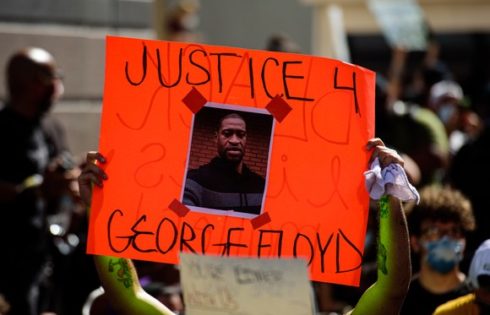
After a federal oversight committee launched an investigation, the University of Maryland put an end to what some lawmakers and health scholars contended was a stringent and outdated COVID quarantine policy.
The university originally mandated that students who contract the coronavirus leave campus immediately and isolate either at an off-campus hotel or by going home, both seemingly at the students’ own expense.
Under the recently revised policy, students who test positive for COVID are allowed to quarantine in their dorms.
The university’s original quarantine directive had come under the scrutiny of the Select Subcommittee on the Coronavirus Pandemic, a Congressional oversight committee created by then-Speaker Nancy Pelosi.
A letter dated Oct. 13 and signed by the committee’s Chairman Brad Wenstrup and all majority members informed university President Darryll Pines that the committee was opening an investigation into his university’s directive.
The letter cited research showing the damaging effects of pandemic-era closure and quarantine policies on the academic performance, mental health, and future income of students, especially those from low-income regions.
Harvard Professor Thomas Kane has described these policies as “the longest-lasting and most inequitable legacy of the pandemic,” the letter noted.
The committee accused UMD of “reinstituting the same negative policies it implemented during the beginning of the pandemic at the expense of its students.”
One of the questions that the letter demanded the university answer was how it spent the $115 million it had received from the federal government as part of pandemic relief.
The College Fix reached out to four professors at the university regarding its quarantine policy, but has not yet received a comment.
In an update last week, Chairman Wenstrup said the university had decided to jettison its directive, which he described as “counterproductive” and “unscientific.”
“Thankfully the University, within days of receiving the Select Subcommittee’s letter, changed its quarantine policy to follow science, data, and common sense,” Wenstrup noted.
The College Fix also contacted UMD’s public relations team, who provided a link to the university’s Health Center website showing the revised quarantine policy and said they would get in touch should the university choose to make another revision.
UMD’s response letter to the committee said that students who test positive for COVID would be allowed, starting on Nov. 1, to quarantine in their dorms.
However, the response letter suggested that the university’s decision to revise its quarantine policy was not a result of the oversight committee’s letter and investigation.
Instead, two other reasons were cited: a drastic reduction in new COVID cases this fall and an updated guidance from the local health department.
“UMD is pleased to report that the number of new COVID-19 cases this fall is about half what they have been in the last few fall semesters,” the letter noted.
The university also claimed to be following the Prince George’s County Health Department’s guidance, which had been recently revised to allow students who cannot travel home to isolate in their residence halls.
The letter added that UMD had received $112.8 million in federal funding for COVID relief. While $50.8 million was given to students, the university retained the remaining $62 million to cover lost revenue and various expenditures during the pandemic.
Chairman Wenstrup said that his committee “will continue to investigate any potentially harmful COVID-19 policies reemerging at universities across the country.”
MORE: Cornell will pay $3 million to reimburse students over COVID restrictions
IMAGE: Shutterstock
Like The College Fix on Facebook / Follow us on Twitter






Please join the conversation about our stories on Facebook, Twitter, Instagram, Reddit, MeWe, Rumble, Gab, Minds and Gettr.